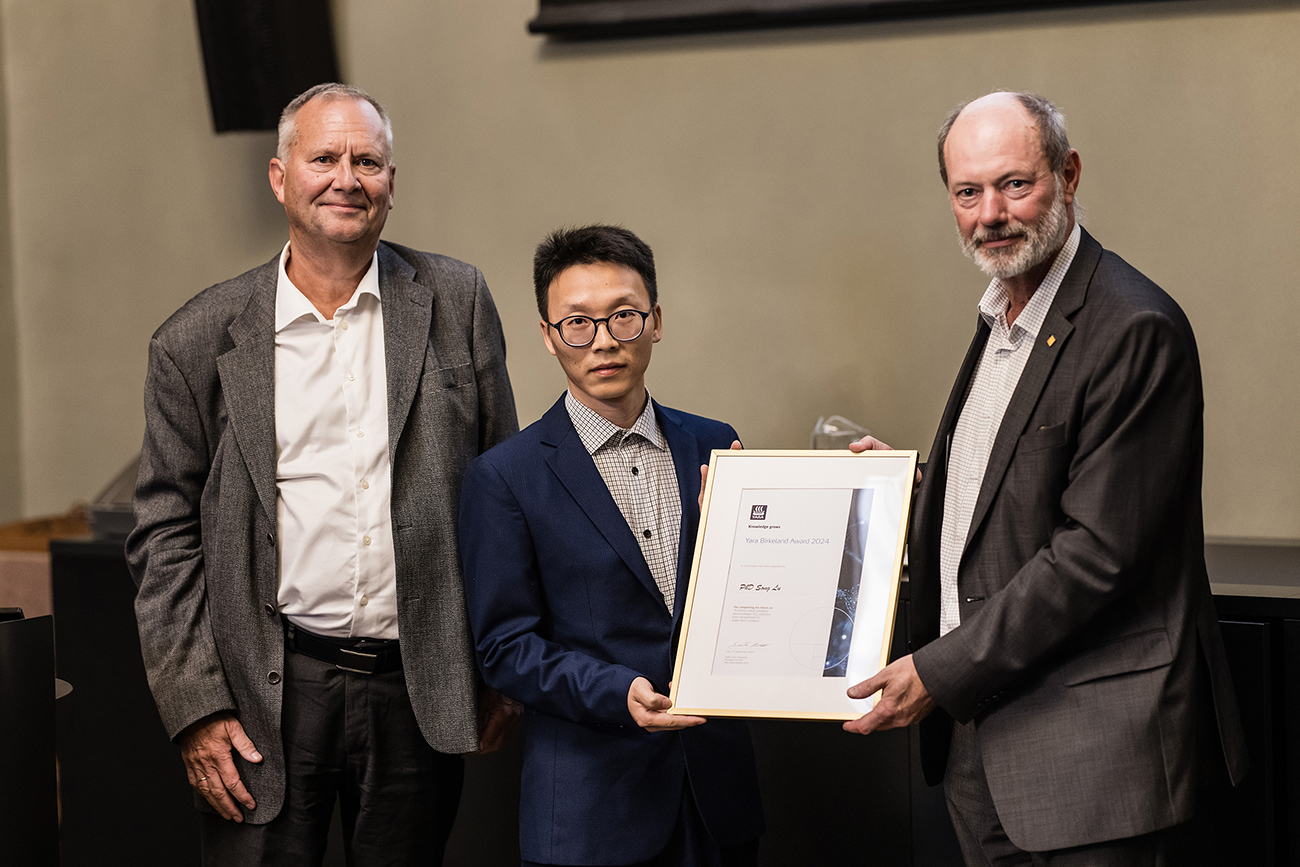Yara’s Birkeland Prize for 2024 in chemistry was given to doctor Song Lu for his thesis titled “Transition-metal-mediated electrocatalytic CO2 reduction: from nanoparticles to single-atom catalysts”.

This year’s Birkeland Lecture was held at Videnskaps-akademiet in Oslo 17th September 2024, chaired by secretary general in DNVA, professor Gunn Elisabeth Birkelund from the University of Oslo. During the lecture, former PhD student at the University of Stavanger (UiS) song Lu was given the award for best thesis in chemistry.
The Yara Birkeland Prize has been awarded since 2009, alternated between chemistry and physics.
CO2 reduction research
The winner of the prize, Song Lu, gave a short lecture of his research work of his thesis “Transition-metal-mediated electrocatalytic CO2 reduction: from nanoparticles to single-atom catalysts”. Song Lu submitted his thesis for the PhD-degree at University of Stavanger in June 2023. His PhD work has been done under supervision of professor Dr. Zhixin Yu at University of Stavanger and co-supervised by R&D-director Dr. Fengliu Lou at Beyonder AS in Stavanger. It is now the second time one of Zhixin Yu's students at UiS has achieved a prestigious award.
Chair of the Yara Birkeland Prize Committee in Chemistry, professor Tor Hemmingsen from UiS gave a short an introduction and a justification for the Yara Birkeland Prize in Chemistry. The prize, which is 100.000 NOK and a diploma, was given by Per Knudsen, Yara.
About Song Lu's work
Dr. Song Lu’s work has been concentrated on design and development on efficient electro catalysis of CO2 reduction to fuel products or chemicals to gain the goals for increased activities in CCU (carbon Capture and Utilization).
Electrochemical reduction reactions of carbon dioxide (ERC) have been a focus area within research on CO2 conversion and utilization, but there are still challenges with slow kinetics, low selectivity of reactions, high overvoltage in reactions, and deactivation of good catalysts in the process.
Lu’s work is interdisciplinary crossing science topics like chemistry, material science, engineering, and environmental science. The thesis gives a deeper understanding of the electrochemical processes and mechanisms in catalytic CO2 reduction, and especially the dual-atom catalysts seem to have a high potential both respect to the efficiency and the selectivity.
His work is of great importance for the industry to make more efficient syntheses of different chemical products, and in addition a contribution to reuse CO2 in a CCU perspective.
The results seem also to have a high potential for upscaling the process giving commercial interests to the results.